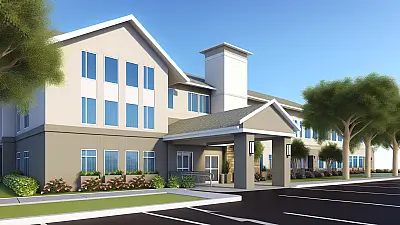JOHNSTOWN, PA - The Lutheran Home At Johnstown failed to properly implement its Quality Assurance and Performance Improvement (QAPI) program, resulting in ongoing compliance issues with care plan regulations during a February 2025 inspection.

Quality Assurance Program Breakdown
Federal inspectors found that the facility's QAPI committee failed to successfully implement their established plan to ensure ongoing compliance with regulations regarding updating and revising residents' care plans. This represents a critical breakdown in the facility's quality oversight system, which is designed to continuously monitor and improve patient care.
The Quality Assurance and Performance Improvement program serves as a facility's primary mechanism for identifying problems, developing solutions, and ensuring sustained compliance with federal nursing home regulations. When this system fails, it can lead to recurring violations that directly impact resident care and safety.
Pattern of Repeated Violations
The inspection revealed that despite previous corrective action plans, the facility continued to struggle with the same compliance issues. During a survey ending February 29, 2024, the facility had been cited for a deficiency regarding quality of care. In response, administrators developed a correction plan that included completing regular audits and reporting audit results to the QAPI committee for review.
However, the current survey findings indicate that these corrective measures were ineffective, as the facility was again cited for similar violations related to care plan management. This pattern suggests systemic issues within the facility's quality improvement processes.
Medical Significance of Care Plan Compliance
Proper care plan development and maintenance is fundamental to nursing home operations. Care plans serve as individualized roadmaps that outline each resident's specific medical needs, treatment goals, and required interventions. These documents must be regularly updated to reflect changes in residents' conditions, new medical orders, or evolving care requirements.
When facilities fail to properly update and revise care plans, residents may not receive appropriate care for their current medical conditions. Outdated care plans can result in missed treatments, incorrect medication administration, inadequate monitoring of chronic conditions, or failure to implement necessary safety precautions.
The regulatory requirement for timely care plan updates exists because residents' medical needs in nursing homes frequently change due to the progression of chronic diseases, acute medical episodes, or changes in cognitive function. Without accurate, current care plans, staff members may not have the information needed to provide appropriate care.
Industry Standards and Expectations
Federal regulations require nursing homes to develop comprehensive care plans within specific timeframes and update them regularly based on resident assessments and changing conditions. The QAPI program is specifically designed to ensure facilities maintain these standards through continuous monitoring and improvement.
Effective QAPI programs typically include regular auditing processes, staff training initiatives, and systematic review of compliance data. When these programs function properly, they identify potential problems before they become widespread issues and ensure corrective actions are effectively implemented.
The facility should have established clear procedures for care plan review and revision, along with systems to monitor compliance with these procedures. Staff should receive regular training on care plan requirements, and the QAPI committee should conduct ongoing oversight to verify that corrective actions achieve their intended results.
Additional Issues Identified
The inspection narrative indicates that the facility's challenges extend beyond individual care plan violations to encompass broader systemic issues with their quality improvement infrastructure. The failure to successfully implement QAPI initiatives suggests potential problems with leadership oversight, staff training, or resource allocation for quality improvement activities.
The recurring nature of these violations indicates that previous corrective action plans may have been inadequately designed, insufficiently implemented, or poorly monitored for effectiveness. This pattern raises concerns about the facility's ability to maintain consistent compliance with federal nursing home regulations.
The Centers for Medicare & Medicaid Services requires nursing homes to demonstrate continuous improvement in care quality through effective QAPI programs. Facilities that repeatedly fail to implement successful corrective actions may face additional regulatory scrutiny or enforcement measures.
Lutheran Home At Johnstown must now develop and implement more effective quality assurance measures to address these ongoing compliance issues and ensure residents receive appropriate care according to current, accurate care plans.
Full Inspection Report
The details above represent a summary of key findings. View the complete inspection report for Lutheran Home At Johnstown, The from 2025-02-12 including all violations, facility responses, and corrective action plans.
💬 Join the Discussion
Comments are moderated. Please keep discussions respectful and relevant to nursing home care quality.